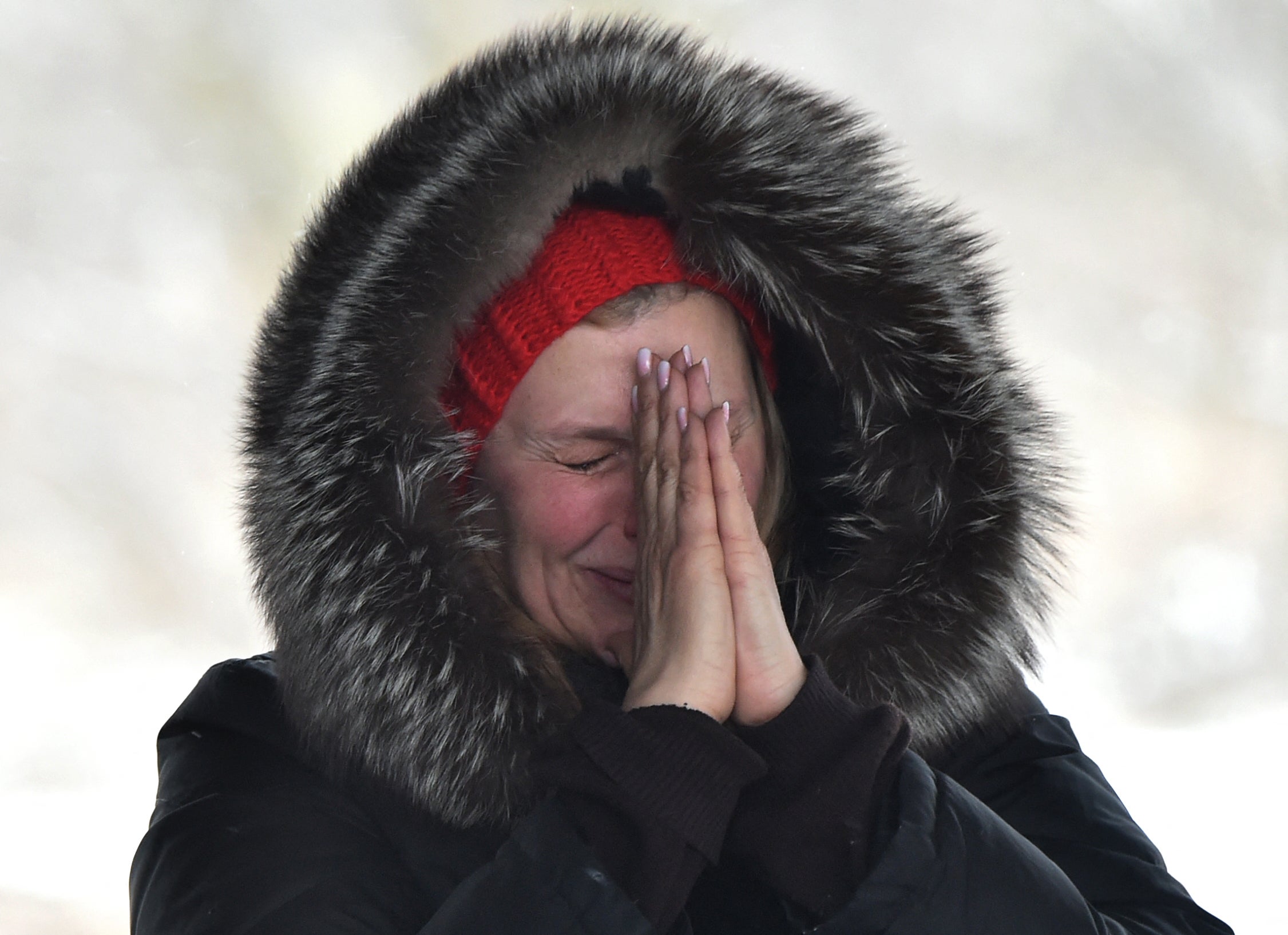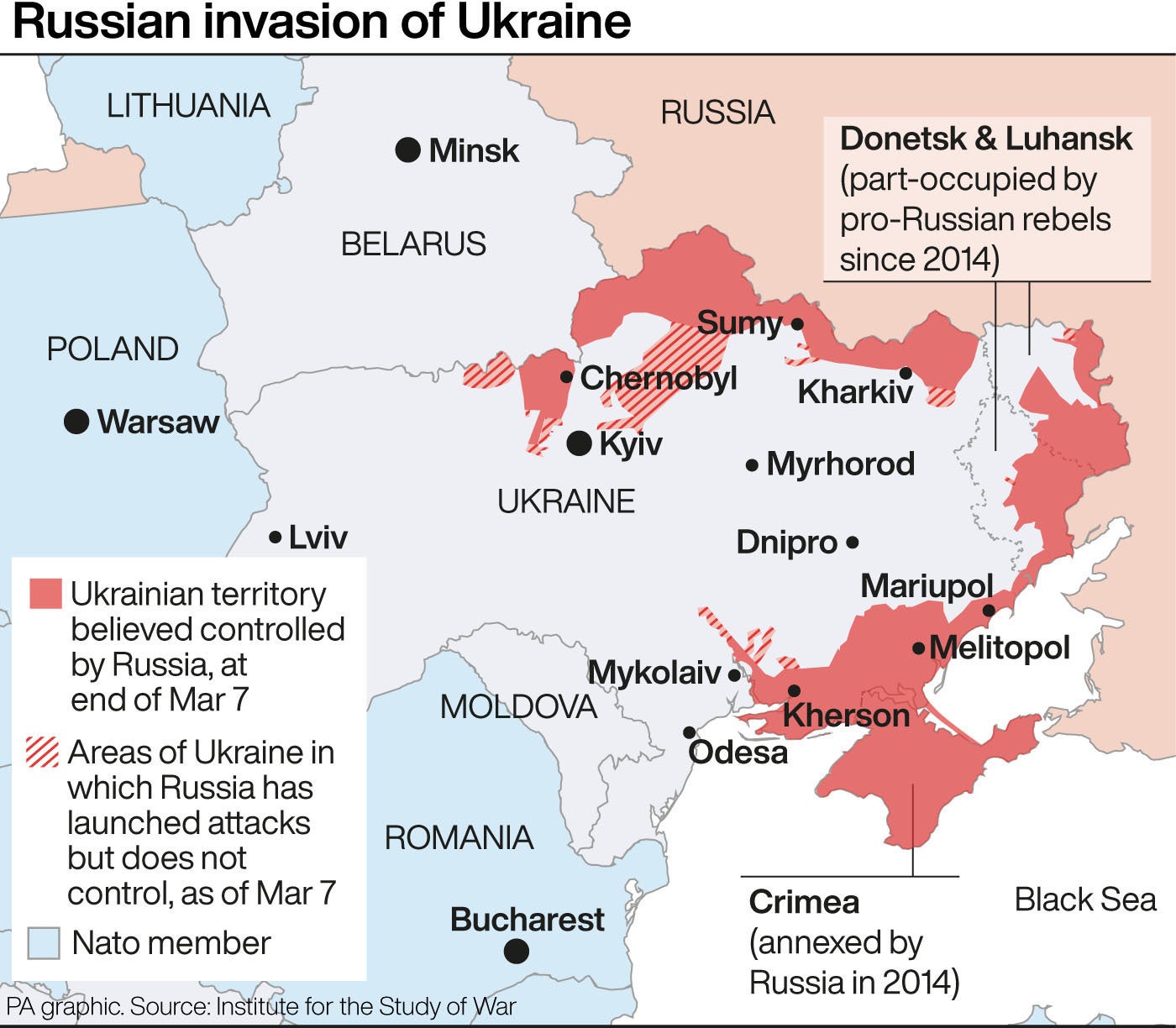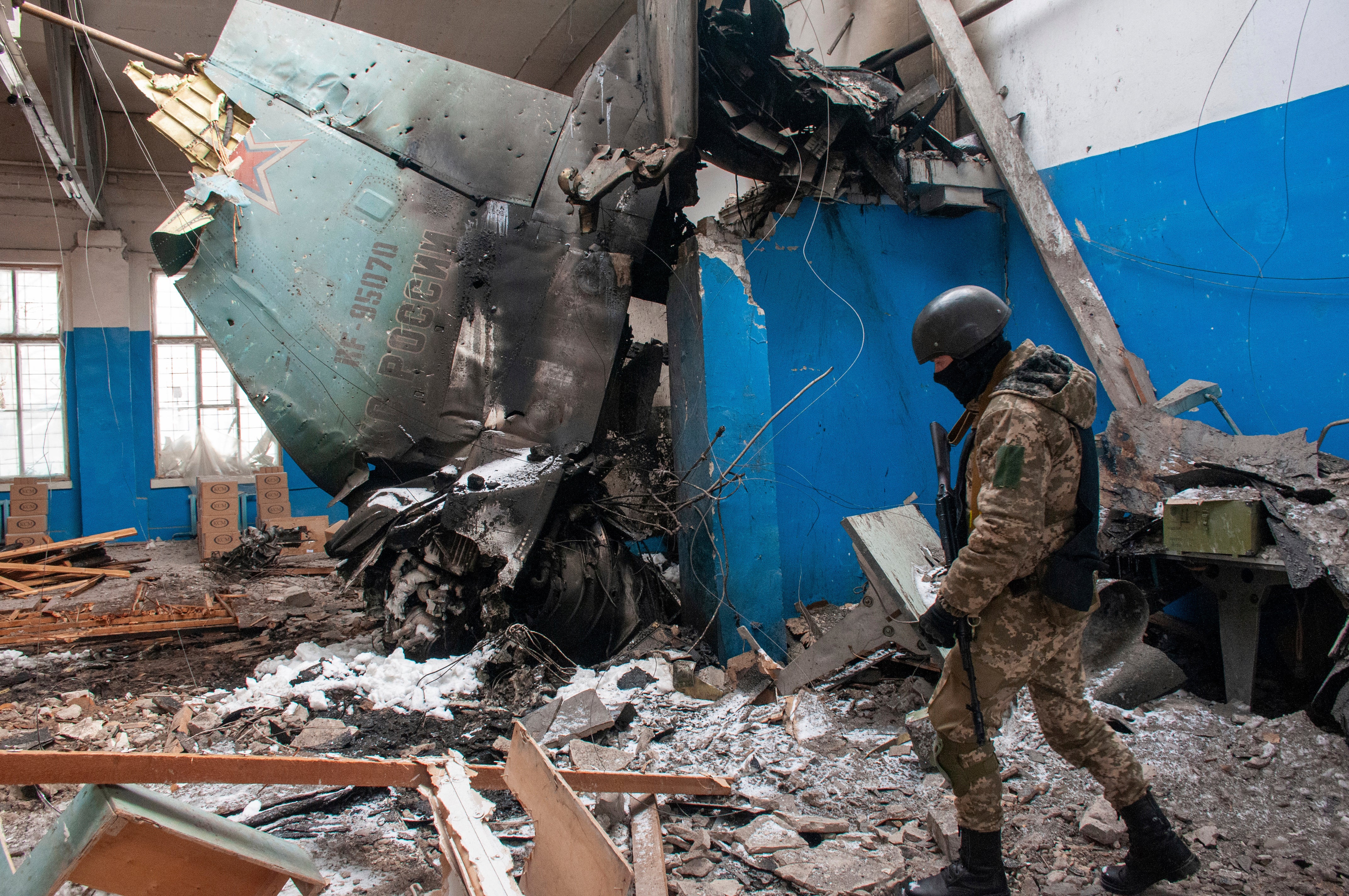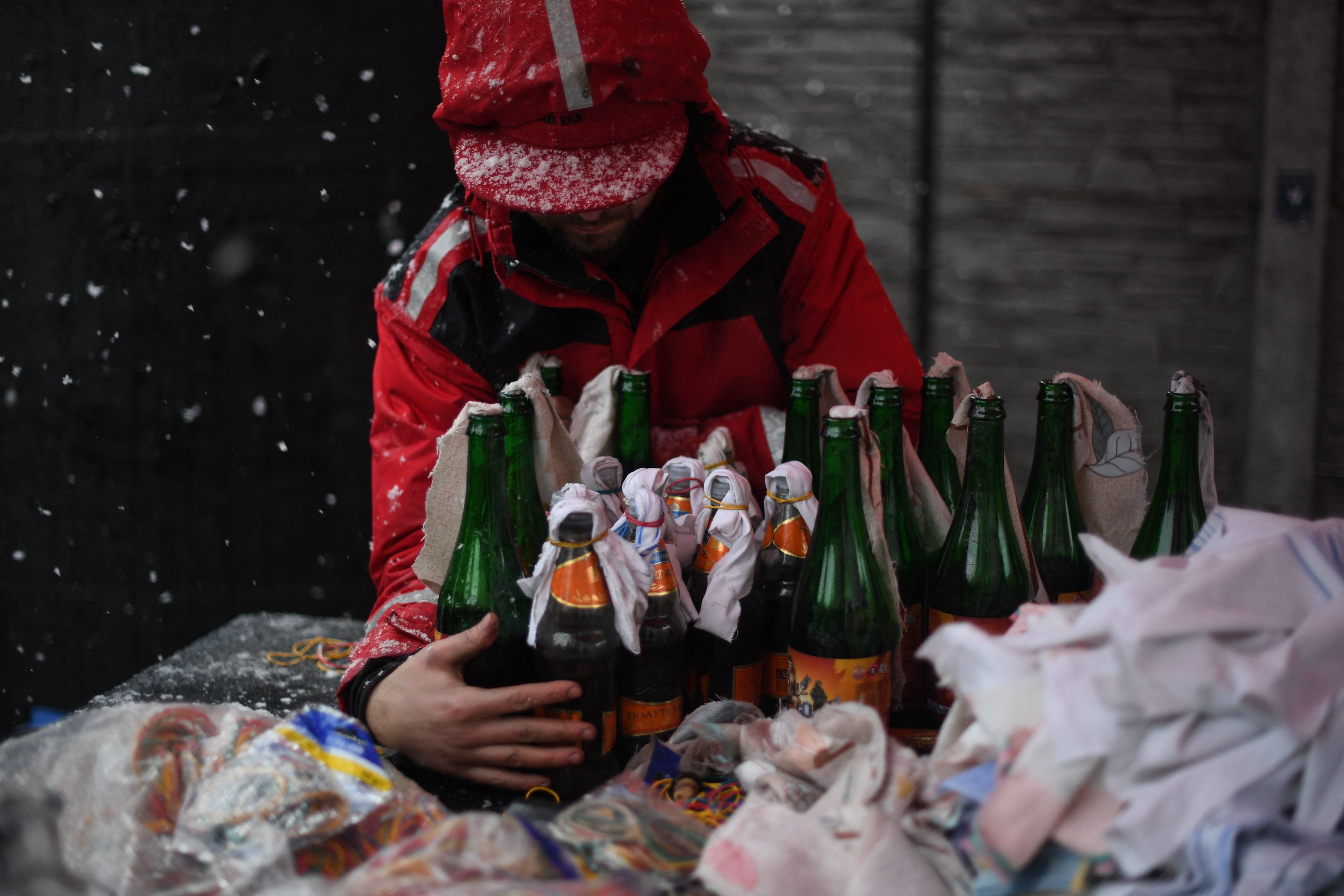What is a humanitarian no-fly zone and could it save lives in Ukraine?
Joe Biden has ruled out enforcing such a move but is under mounting pressure, writes Andrew Buncombe


Your support helps us to tell the story
From reproductive rights to climate change to Big Tech, The Independent is on the ground when the story is developing. Whether it's investigating the financials of Elon Musk's pro-Trump PAC or producing our latest documentary, 'The A Word', which shines a light on the American women fighting for reproductive rights, we know how important it is to parse out the facts from the messaging.
At such a critical moment in US history, we need reporters on the ground. Your donation allows us to keep sending journalists to speak to both sides of the story.
The Independent is trusted by Americans across the entire political spectrum. And unlike many other quality news outlets, we choose not to lock Americans out of our reporting and analysis with paywalls. We believe quality journalism should be available to everyone, paid for by those who can afford it.
Your support makes all the difference.The Biden administration has been urged to impose a limited “humanitarian” no-fly zone over Ukraine by a group of foreign policy experts, who argue that not doing so could lead to a “potential bloodbath”.
Referring to the vow “never again” that was frequently voiced after the Holocaust, the experts said the people of Ukraine must be wondering whether such a commitment included them.
“Vladimir Putin’s decision to invade Ukraine has caused massive devastation and loss of life for Ukrainians,” said an open letter released this week by the group, which included retired general Philip Breedlove; former Supreme Allied Commander Europe; and Paula Dobriansky, a former under secretary of state for global affairs who worked for five presidents.
“His premeditated, unprovoked and unjustified war of aggression has created the greatest crisis on the European continent since the end of World War II.”
It added: “Despite the truly heroic efforts by Ukrainian soldiers and average citizens to resist the marauding Russian forces, Putin’s military is poised for further attacks on major cities, including the capital Kyiv.”
Ukraine’s president Volodymyr Zelensky has repeatedly requested the US and other Nato nations enact such a move to protect his citizens against bombing, rocket attacks and advancing Russian troops. He made the request once again on Tuesday when he spoke to Britain’s parliament by video link, urging the assembled legislators to do more.
“We will not give up and we will not lose. We will fight to the end on the sea, in the air, we will continue fighting for our land, whatever the cost. We will fight in the forests, in the fields, on the shores, in the streets,” he said, in comments that echoed the remarks of wartime leader Winston Churchill.
Sviatoslav Yurash, the youngest member of Ukraine’e parliament and who has been photographed helping to organise the defence of Kyiv with an AK-47 slung over his shoulder, told The Independent the imposition of a no-fly zone was “fundamental” to his nation’s survival.

“The reality is that as far as Russian air power is ever present and hitting all over Ukraine. You can watch the imagery yourself and the savagery Russians are inflicting on the Ukrainian people,” he said.
Joe Biden and the leaders of other Nato nations have stressed they do not wish to impose a no-fly zone as it could lead to direct clashes between Russian and Nato forces, the kind of incident that could rapidly escalate into an even wider war.
“[The] president’s been very clear about one thing all along as well, which is we’re not going to put the United States in direct conflict with Russia, not have, you know, American planes flying against Russian planes or our soldiers on the ground in Ukraine,” Secretary of State Antony Blinken told NBC’s Meet the Press.
“The president also has a responsibility to not get us into a direct conflict, a direct war with Russia, a nuclear power, and risk a war that expands even beyond Ukraine to Europe. What we’re trying to do is end this war in Ukraine, not start a larger one.”
Yet, the foreign policy experts, who also included Alexander Vershbow, a former US ambassador to both Russia and NATO, and Melinda Haring, deputy director of the Atlantic Council’s Eurasia Centre, suggested that a limited no-fly zone was possible.
“We urge the Biden administration, together with Nato allies, to impose a limited no-fly zone over Ukraine starting with protection for humanitarian corridors that were agreed upon in talks between Russian and Ukrainian officials on Thursday,” they wrote in the letter, first reported by Politico.
“Nato leaders should convey to Russian officials that they do not seek direct confrontation with Russian forces, but they must also make clear that they will not countenance Russian attacks on civilian areas.”
They added: “Ukrainians are courageously defending their country and their freedom, but they need more help from the international community. A US-Nato enforced no fly zone to protect humanitarian corridors and additional military means for Ukrainian self-defense are desperately needed, and needed now.”
There have been a number of occasions when the US and other countries have imposed no-fly zones for humanitarian reasons.
Operation Deny Flight was a Nato operation the lasted for two years over Bosnia and Herzegovina, and that involved 100,420 total air sorties by 12 Nato nations.

In 1991, the US, UK and France announced a no-fly zone over northern and southern Iraq to protect ethnic Kurds and Shiite Muslims.
It was carried out until the 2003 invasion of Iraq, that was not backed by the UN and critics alleged was illegal. More than 200,000 sorties were flown.
The question of whether a no-fly zone could be enforced over Ukraine without triggering further conflict is being discussed now at the highest levels of Nato nations, and in public.
Former US Ambassador to Russia Michael McFaul told MSNBC he did not support such a move and said anyone advocating for one should call it what it really is – a willingness to “declare war”.
“I disagree with Alex. I think a no-fly zone is the wrong move. I support the president of the United States on that,” Mr McFaul said, referring to Alexander Vindman, a former army colonel who served on the US national security council and who is in favour of enforcing such a policy.
“Let’s just get rid of this euphemism ‘no-fly zone’. Call it for what it is. It is war. If we try to implement a no-fly zone, that means that an American pilot has to shoot down a Russian pilot. And if we do that, that is a declaration of war and Vladimir Putin has been clear that that is the way he sees it.”

Iulia-Sabina Joja, director of the Middle East Institute’s Afghanistan Watch programme and a professor of at Georgetown University, was not among those who signed the letter, but she told The Independent she backed the move.
She said the humanitarian mission would seek to create a safe zone in the west of Ukraine, but acknowledged the situation of pitting nuclear armed nations against each other in conventional combat was unprecedented.
“A no-fly zone is still a no-fly zone. It still puts you – independent of how much space you would take in Ukraine – it still means that you at least run the risk of having to shoot down Russian airplanes,” she said.
However, she said she believed that for humanitarian reasons and for her belief Mr Putin “would not stop at Ukraine”, the West needed to act. “The only thing Putin understands is a military response,” she said.
White House press secretary Jen Psaki said on Tuesday a limited no-fly zone over humanitarian corridors to allow safe evacuations could still escalate the conflict.
According to Reuters, Ms Psaki told reporters en route to Texas, where Mr Biden was speaking, that such a move would still require shooting down Russian planes if they fly into the zone, even if it covered a smaller area.
She added: “We would still have concerns about that being an escalatory action that could lead us into a war with Russia, which is not something the president intends to do.”
Join our commenting forum
Join thought-provoking conversations, follow other Independent readers and see their replies
Comments